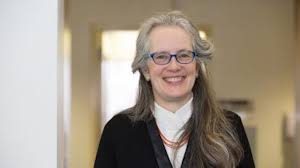
Thursday, and I’m spending the day at Mt. Zion/UCSF Hospital, for a myriad of appointments (all fine. Diagnosis= aging.) I’m a well experienced medical appointment attendee: my mother had a chronic illness from the time I was born until she passed when I was thirty, and my daughter also manages (with grace) a difficult chronic illness.
In between the years I cared for one or the other, I chose to work for UCSF for five years, so as I wander the hallways, I am strangely at home.
One of my sisters hates hospitals to this day, after years of literally growing up in waiting rooms while my mother had one of her twenty surgeries. I kind of like them.
What?
I know, it’s a strange thing to admit. I think it is a combination of two things. One is enjoying competence – I can advocate like a roaring mama bear, find you something tasty and allergy free in the café, grab the most compelling magazine in the gift shop, and learn the nurse’s life story – possibly in Spanish – all in an afternoon.
Other people know how to navigate cities, political conversations, war zones, and zoning wars. I get hospitals.
The other reason I’m comfortable here, is hospitals have a mission: People are not well, and other people take care of them, and ideally, make them better. In our current socio-political climate, I appreciate the straight-forward purpose.
In any case, I have four hours to kill here at UCSF Mt. Zion.
I settle into the garden area of the cancer center, after my time in the meditation room but before I cave and go buy a cookie and caffeine. A quilt hangs on the wall. Each square has a nicely crafted symbol, made by various women who apparently attended a women’s health conference in 2006. Looking closer, I see it was hosted by the Center of Excellence in Women’s Health here at UCSF.
I smile, because twenty-one years ago, I worked intensely for days to help write the grant to create this program. Clinton’s administration had decided to establish six Centers of Excellence in Women’s Health around the country, and I was tasked to help a team of physicians and administrators at UCSF who had decided to take on the proposal, a bear of a federal grant.
I came in to the process shy – I wasn’t a doctor or an administrator. I had been hired at UC as a new therapist a few years before. When I realized my position had an end date, I asked if I could take a crack at writing another grant, to keep the program going. Four years later, about ten grants funded, I’d risen to a leadership role in a very small pond.
But joining the team for this grant was wading into a much larger lake.
The head of OB/GYN wandered in and out of the conference room, encouraging us, as did the head of Psychiatry at one point, while I sat between a cardiologist and an amazing champion for women’s health, Dr. Nancy Milliken.
I frequently wondered how I had gotten to this table, but focused on writing with our small team. People said what they wanted the grant to be about, and we wrote it down. People said they needed this research incorporated, or that concept stressed, and we wrote it in. People’s impressive bios were sent to us in the middle of the night, and in the morning we were writing them in.
“What’s most important here? For women’s health – what matters most?” Dr. Milliken occasionally asked us. I kept looking over my shoulder to see who she was talking to. Me?
OB/Gyn services? Mental Health? Female Physicians, Women of Color in Research? This was a big mission.
What I remember most clearly is eating pizza very late at night, while nursing my six month old daughter, Casey. When I needed to write more, we passed the baby around the table. I had been in this room writing for most of each day for a week, going home to sleep for a few hours and see my four year old, then heading back.
Nancy Milliken, then an Ob/Gyn, praised us all continually, but especially cheered me on for being the nursing mother/writer at the table. I told her I was certainly comfortable writing about the importance of mental health services for new mothers (because by this time I felt certifiably delusion.)

My daughter calls my cell as I’m admiring the quilt. She wants to Face-time so I can see the snow blanketing her campus in Washington State. In turn, I show her the quilt hanging at Mt. Zion.
“I was there for the first time we held this conference,” I tell her. “I ran the teen health portion! I think it was 1996.”
“Awesome! Do you think they have internships available?”
(She is a college senior. All roads lead back to the imminent question of what will happen in May.)
I imagine her resume, already impressive, with this addition for the Center of Excellence application: I was the baby at the table twenty one years ago!
“I’ll check.”
I wonder if her stated career plan, “To write about Environmental, Immigration and Health Care Justice,” comes from early childhood memories of grant-writing binges like that one.
I leave for my next appointment, spirits buoyed.
On long writing days, when I wonder how I chose this particular vocation, and whether it makes any difference in the world, I need to remember this quilt. To consider the Center of Excellence in Women’s Health, still going, which started as an idea, then with words on paper. To remember it started with a group of women, around a table, dreaming.
As so many wonderful things do.
